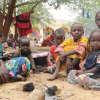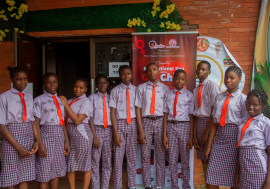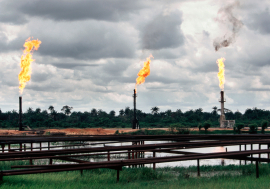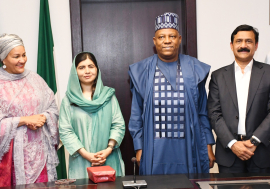As President Muhammadu Buhari of Nigeria launched the 1.52MWp Solar Microgrid Plant to improve access to electricity in Abuja, the United Nations Deputy Secretary-General Amina J. Mohammed, has reiterated that the challenges of energy poverty could be surmounted by collective action.
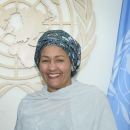
“Together we can and must end energy poverty and ensure a just, resilient, and healthy world for all.” She said at the commissioning of the 1.52MWp/2.28MWh Solar Microgrid System and Energy Retrofitting of the Federal Ministry of Works and Housing Headquarters, in Mabushi, Abuja.
The solar microgrid system was commissioned on Tuesday, 6 July 2021, by the President, H.E. Muhammadu Buhari, who was represented by the Secretary to Government of the Federation, Mr Boss Mustapha.
The President noted that “This 1.5MW solar farm, which is the largest solar project for a public building in Africa will enable us to reduce carbon emissions and we are proud that we are contributing to saving the climate for future generations.”
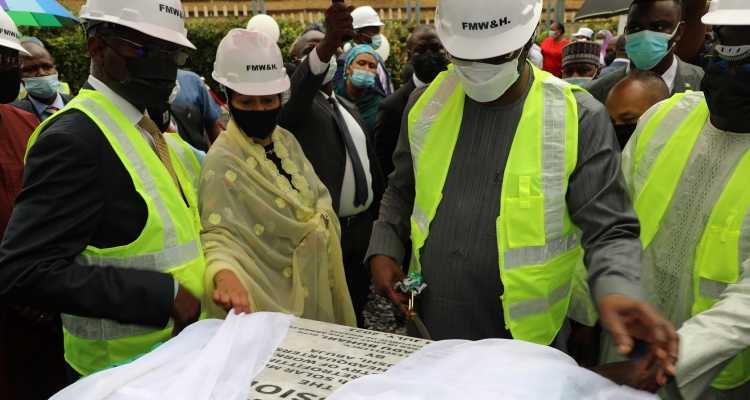
President Buhari stressed that access to electricity would improve service delivery in the public sector and will translate into the ease of doing business “which is a major objective of our economic plans to grow the Nigerian economy and create jobs.
The UN Deputy Secretary General further disclosed that 759 million people in the world still lack access to electricity and all the opportunities it brings for achieving the sustainable development goals. 2.6 billion people lack access to clean fuels and technology for cooking, lighting or heating their homes.
“It gives me great pleasure to be part of this launch ceremony today, which highlights Nigeria’s commitment to the energy transition with renewables. She added.
The Minister of Works and Housing, Mr. Babatunde Fashola said that “What we have delivered, based on the mandate of the Federal Executive Council, is a 1.52MW solar system that will provide uninterrupted power supply to five blocks housing the Ministry of Works and Housing and Ministry of Environment and Lands.”
He added that the project employed 382 artisans and 176 skilled workers throughout its duration, as this was in fulfilment of the government’s Economic Recovery and Growth Plan of creating jobs.






